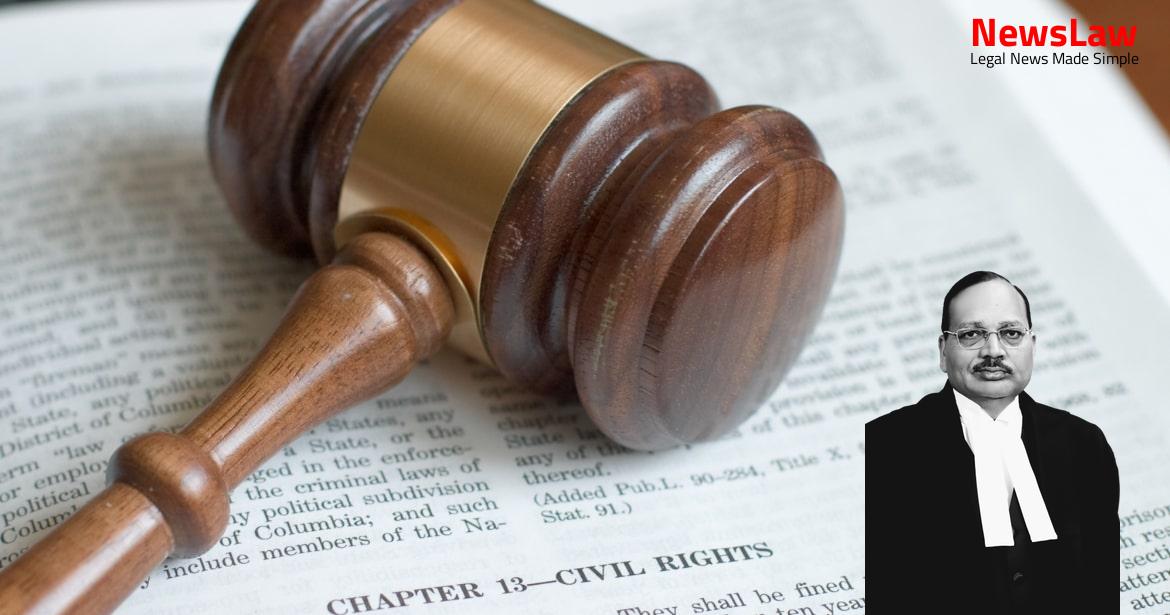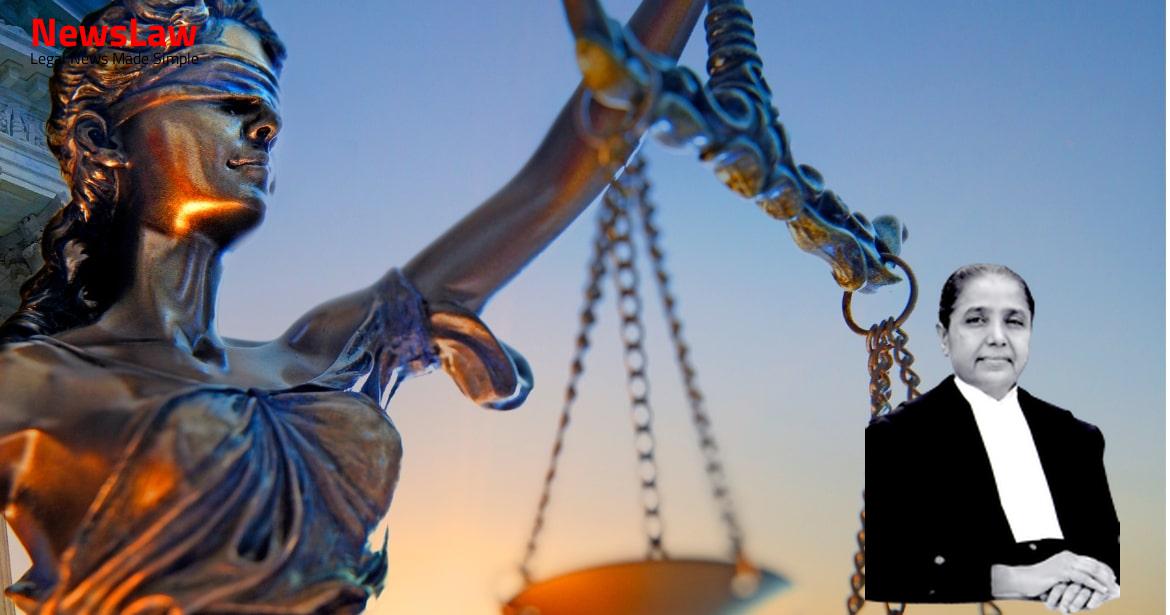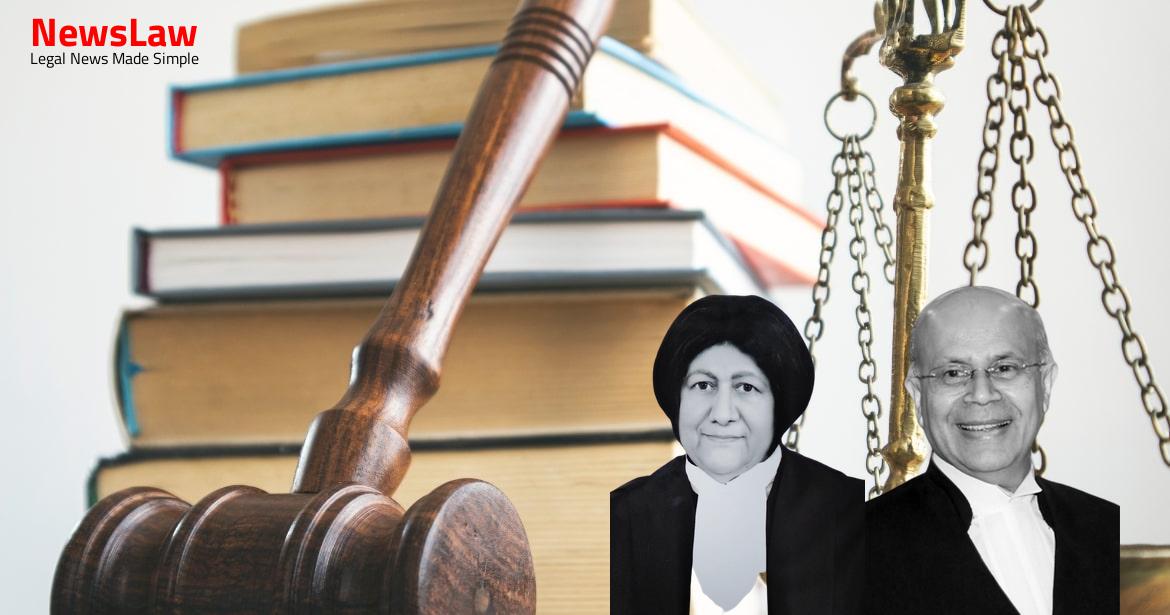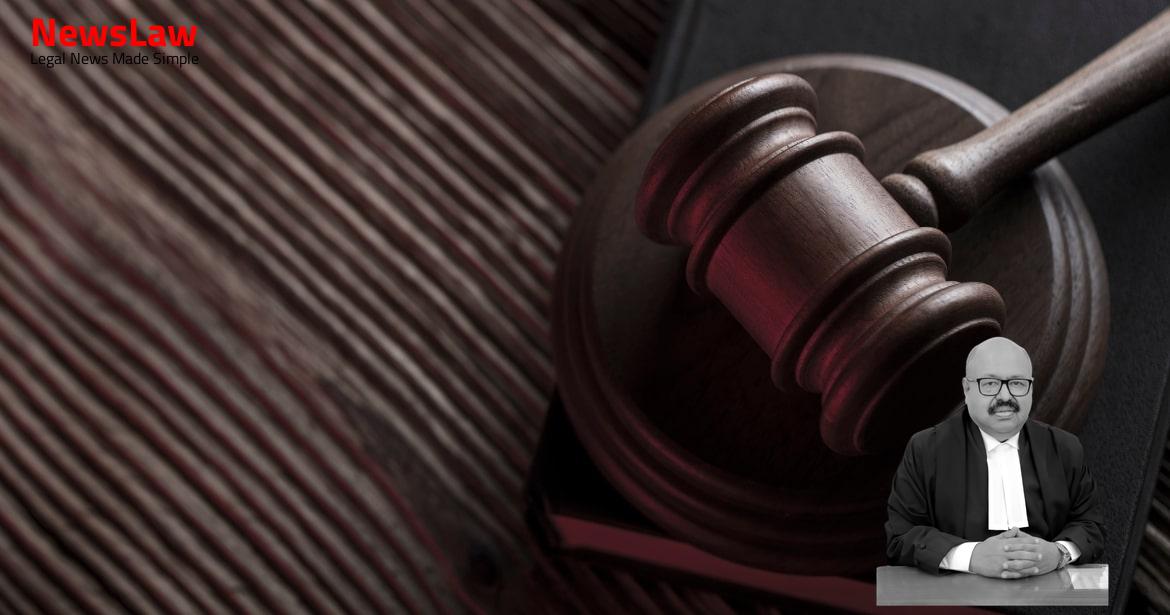In a recent legal case, the court delved into the nuances of contract interpretation and jurisdiction. The analysis focused on the clarity of language in the contract and the correct application of jurisdictional laws. This case sheds light on the fundamental principles of legal interpretation and the boundaries within which courts operate in contractual disputes.
Facts
- The appellant filed a civil suit RCS No 764 of 1981 before the Court of Joint Civil Judge, Junior Division, Pune, after an agreement was reached
- The case is about a contract between the Appellant (deceased represented through Legal Heirs) and the Respondent for a stationary business
- The Appellant’s husband ran a business named Karandikar Brothers before his death in 1962
- After his death, the Appellant ran the business for a while but later decided to let the Respondent run it
- An agreement was entered on 07.02.1963 regarding running the business by the Respondent
- The Respondent filed an Appeal against the Trial Court judgment in Civil Appeal No 979 of 1988 which was allowed in their favor
- The Appellant issued a notice in 1980 to vacate the premises but the Respondent claimed it was a rent agreement
- The rent was to be paid to the owner by the Appellant, and a royalty amount of Rs. 90 per month was agreed upon
- The Bombay High Court allowed the Second Appeal No 537 of 1991 in favor of the Respondent, setting aside the decree in favor of the Appellant
- The Trial Court did not have jurisdiction to try the cases under the Bombay Rent Act.
- The appropriate Court should have been the Small Causes Court established under the Provincial Small Causes Court Act.
- The Second Appellate Court found that both the Trial Court and the First Appellate Court incorrectly interpreted the document and surrounding circumstances.
- It was indicated that the parties had agreed that the premises were transferred to the appellant on a leave and license basis.
- On 29.07.1991, the Additional District Judge dismissed the appeal filed by the Respondent.
- The Respondent filed a Second Appeal before the High Court of Bombay, Second Appeal No 537 of 1991.
- The High Court of Bombay, in the impugned order dated 07.11.2009, allowed the Second Appeal and set aside the Trial Court’s order as well as the First Appellate Court’s order.
- The High Court held that the Respondent had entered into a license agreement covered under Section 15A of the Bombay Rent Act.
Also Read: Electoral Malpractices in Mayor Election
Issue
- The Trial Court decreed the suit in favor of the appellant, ruling that the Agreement aimed at selling the business rather than renting the premises to the respondent.
- The court rejected the respondent’s claim that the shop premises was provided on a license basis.
- The original business in the shop was conducted by Waman Karandikar, the husband of the deceased Mangala Karandikar.
- The business of stationary, books, and notebooks was transferred to the respondent.
- The Trial Court framed an important question during the trial regarding the respondent’s claim of being a licensee in the premises since 1963.
Also Read: Balancing Power and Transparency: Electoral Bonds Struck Down, Disclosure Mandated
Arguments
- The counsel for the respondent supported the judgment by citing extrinsic evidence
- The respondent’s counsel argued that the contract was a license to use the shop under the Bombay Rent Act
- The respondent’s counsel stated that the Trial Court lacked jurisdiction based on the nature of the contract
Also Read: Recall of Resolution Plan Approval: Legal Analysis
Analysis
- The High Court erred in appreciating the ambit of Section 95 of the Evidence Act, focusing on breach rather than ambiguity in the language of the contract.
- Section 95 allows for clarification of language in a document when it is unmeaning in reference to existing facts.
- Interpretation of contracts depends on the intentions expressed by the parties and understanding the true meaning.
- The document in question was clear and unambiguous, so the High Court’s interpretation violated legal interpretation principles.
- The defendant failed to prove that the shop premises were given to him on a license basis.
- The impugned agreement was determined to be a license for continuing existing business.
- Such arrangements are not covered by the Bombay Rent Act.
- Evidence contrary to the clear language of the contract cannot be considered in the eyes of the law.
- The argument that the situation falls under the Bombay Rent Act is misplaced.
Decision
- The appeal is allowed with no order as to costs.
- The Trial Court ordered the respondent to hand over the suit property to the appellant.
- The impugned order of the High Court is set aside.
- The jurisdiction of the trial court is not ousted.
- The decree of the trial court is restored.
Case Title: MANGALA WAMAN KARANDIKAR(D) TR.LRS. Vs. PRAKASH DAMODAAR RANADE (2021 INSC 288)
Case Number: C.A. No.-010827-010827 / 2010



